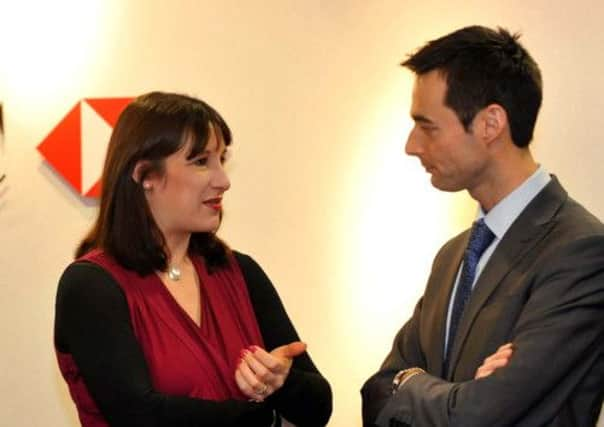There are green shoots, says top economist


But Simon Wells, Chief UK Economist for HSBC, said that although he expects 2013 to be “better” than last year, the UK is still “on a long road to recovery”.
He also said that the impact of monetary stimulus “seems to be waning”, stressing that what is needed to stimulate the economy is investment in infrastructure and skills.
Advertisement
Hide AdAdvertisement
Hide AdMr Wells was speaking to the Yorkshire Post after chairing a lunchtime audience with Rachel Reeves, MP for Leeds West and Shadow Chief Secretary to the Treasury.
Outgoing Bank of England Governor Sir Mervyn King recently joined a growing number of central bankers calling for another £25bn to be pumped into the UK economy.
Minutes of the February meeting of the BoE’s Monetary Policy Committee revealed Sir Mervyn and Paul Fisher joined David Miles in calling for quantitative easing (QE) to be increased to £400bn. But they were defeated as members voted 6-3 to keep QE level at £375bn.
Mr Wells said: “I think QE has worked hugely well. If you look back to 2009 the economy was staring into the abyss and depression and deflation loomed and actually what we are looking at now is a very slow recovery. The worst was avoided and I think QE was quite effective in doing that.”
Advertisement
Hide AdAdvertisement
Hide AdBut he said: “The problem is we are now in a period where we have had three years of stagnation and yet inflation has been pretty high, employment growth has actually been quite strong over the past year, so... maybe there isn’t that much slack in the economy after all and therefore by doing ever more money printing, ever more monetary stimulus, you do run the risk of ending up with higher inflation.”
Mr Wells added: “What we need to do to have a fighting chance of good growth in the longer term is do things that are going to raise the potential level of supply in the economy... so that requires a lot more investment, both by companies and government, investment in infrastructure and investment in skills frankly, because investment through this recovery has been incredibly weak.”
Mr Wells said the UK should expect “above target” inflation this year, adding that while its economic performance in 2012 was dismal, there are reasons to think 2013 will be better.
“We have a better international environment, not least because, although the structural economic problems in the euro area remain and are likely to remain for some time, the immediate threat of euro area break up of the single currency is off the table so the world is a less uncertain place than it was a year ago.
Advertisement
Hide AdAdvertisement
Hide Ad“Secondly the fact that employment has held up, people now are less fearful about losing their jobs than they were 12 months ago, so they may be willing to save a bit less and spend a bit more despite the squeeze they are going to have on their incomes once again. But we are talking about a better year, not a good year.” Recent figures showed a drop in the number of people out of work by a further 14,000 in the three months to the end of 2012 – including a fall of 1,000 in Yorkshire.
The number of people in work increased again, which nationally reached almost 30m – the most since records began in 1971. Mr Wells said that strong jobs figures against a weak economic backdrop represents “one of the huge puzzles of our time”.
“I think initially certainly very loose monetary policy, low interest rates and a lot of forbearance on the part of banks meant that an unusually small number of companies went bust through the recession and that allowed people to hang on to labour and therefore we saw labour hoarding by firms.
“That becomes harder to argue now that firms are actually going out and hiring quite a lot again.”
Advertisement
Hide AdAdvertisement
Hide AdHe said one supporting factor might be that because inflation has been higher than wage growth and post-inflation wages have fallen, firms may be able to keep on more people than might have been the case through previous recessions.
‘More symbolic than catastrophic’
THE UK has had its top AAA credit rating cut by Moody’s, based on its expectation that growth will “remain sluggish over the next few years”.
The ratings agency lowered the UK from its highest rating to AA1 on Friday. Speaking on Thursday, before the announcement had been made, Simon Wells said: “I think the UK retains many characteristics of a top rated economy, strong political institutions and financial institutions, relatively low corruption and all these things but it does have a debt problem.”
He said at the time it would be “more symbolic than catastrophic” for the UK to loose its AAA rating, as it had held the standard since ratings began in the 1970s.